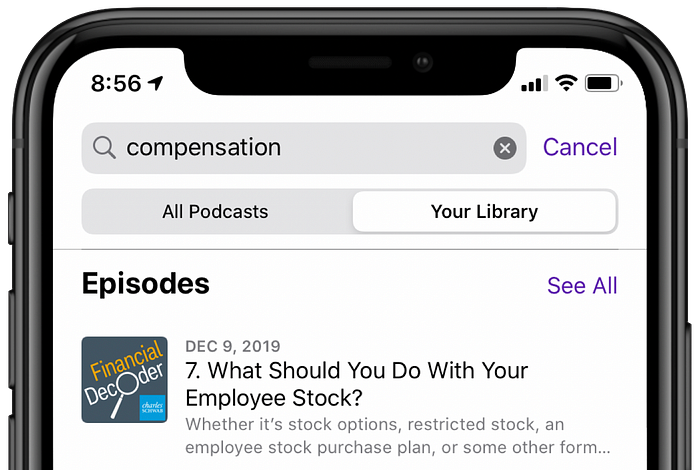Last week, we looked at podcast show descriptions, and discovered that many podcasters don’t make the most out of this important piece of podcast packaging.
This week, I decided to look at episode notes.

(Point of clarification: episode notes are associated with a specific episode of your podcast, whereas a show description is associated with your entire series. Confusingly, people often refer to episode notes as “show notes.”)
What are episode notes good for?
Episode notes are a great place to include information that’s relevant to your episode, such as:
- A summary or outline of topics and stories
- Names and bios of guests
- Juicy transcribed quotes or excerpts
- Related links to relevant websites and social accounts
- Relevant images
- Production credits
- Disclosures, disclaimers, and other required legalese
According to Apple, each episode of your podcast can have up to 4,000 characters of associated show notes. You can include a plain text version, an HTML version, or both. James Cridland of podnews has written a useful guide to episode notes implementation details.
By the numbers
I was curious about the average length of episode notes, so I grabbed a sample of metadata from about 20 million distinct audio episodes from Apple Podcasts. Then I ran the numbers.
- The longest episode notes I found were 3,972 characters long
- The mean average episode notes were 429 characters
- The median average episode notes were 256 characters
Like show description length, the distribution of episode notes length has a positive skew, with relatively few long descriptions:

The bottom line: more than half of all podcast episodes use less than 256 of the 4,000 characters available to them. That’s roughly 6% of the total available space, which feels like a missed opportunity to me, especially when you consider…
Show notes can help listeners find your podcast
Robust episode notes can be especially helpful for SEO.
Consider Bonnie Riggs. She’s a restaurant industry analyst, and appeared as a guest on this episode of Repeat Customer all about Shake Shack. Bonnie’s name doesn’t appear in the episode title, but it does appear in the episode notes. Voila: anyone searching Google Podcasts for “Bonnie Riggs” should find the episode.
Another example: feature-driven development. It’s a software methodology related to Agile. A search for “feature-driven development” in Google surfaces several episodes, including a relevant episode of if/else, about different Agile software development methodologies.
Search-friendly episode notes don’t just help new listeners find your podcast. They can also help existing listeners search within their own podcast libraries. For instance, searching my own Apple Podcasts library for the word “compensation” called up a relevant episode of Financial Decoder that I’d already listened to.

This can help address the “which episode was I listening to where they talked about [insert subject here]?” problem. But this only works if the relevant keywords are included.
Remember
- Robust and fulsome episode notes can help your show’s SEO
- You have 4,000 characters available for each episode’s notes. Half of all podcasts use fewer than 256 characters
- Make sure to include guest names, episode outlines and summaries, and relevant links in your episode notes
It’s never too late to revise the episode notes in your podcast’s back catalog. What additional details will you add?
Sign up for the Pacific Content Newsletter: audio strategy, analysis, and insight in your inbox. Once a week.



